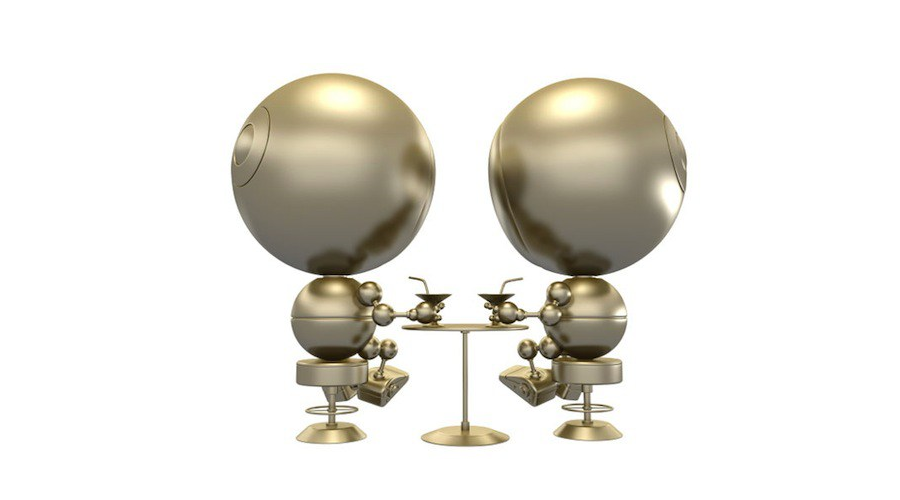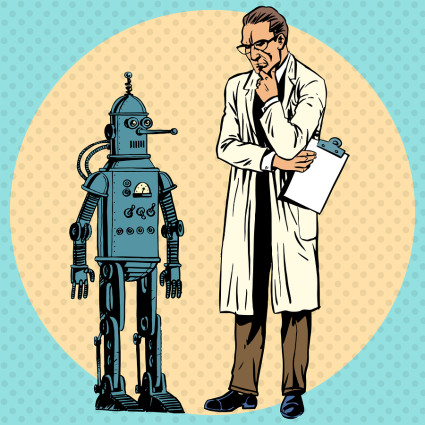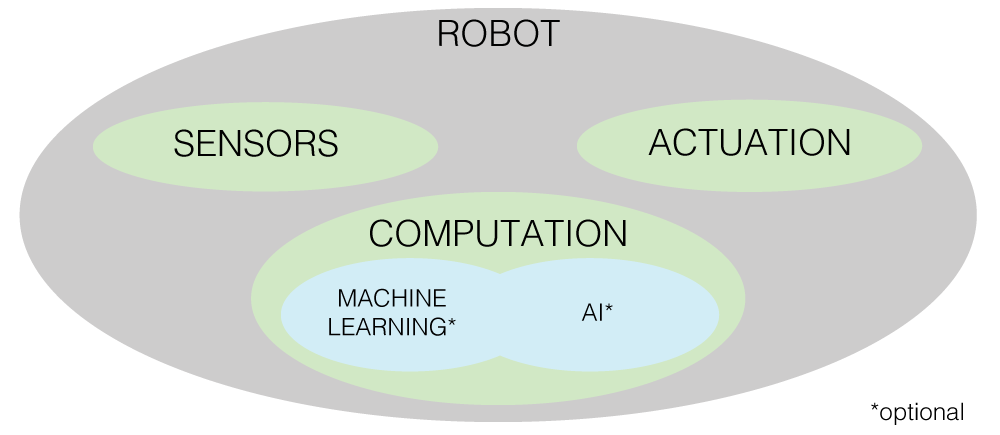
Robohub.org
Robohub roundtable: Why is it so difficult to define ‘robot’?

Put on your thinking caps. Every few weeks, Robohub will conduct a roundtable discussion. In this edition, we discuss the challenges and limitations in defining the word ‘robot’. We strongly encourage our Robohub readers to chime in and be part of the conversation!
This week had Sabine Hauert, Andra Keay, Alan Winfield, Kassie Perlongo, Yannis Erripis, John Payne and Audrow Nash together to provide a variety of perspectives from research, ethics, business, and the general public.
The great debate – what is a robot? Ask a roboticist and you’ll likely get a dozen different responses. If we were to look at robotics as a set of enabling technologies (machine learning, internet of things, sensors, computation, hardware), we’d end up with nearly everything being a “robot”: from your toaster to your home. Not to mention, technology is constantly changing over time, which can easily be forgotten. Instead of having a rigid, well-defined easy answer, it appears we’re forced to accept the definition is fluid, depending on the purpose it serves. Defining what a robot is will be uniquely different if you’re a lawyer, philosopher, researcher, or a company.
Not an easy sell, nor something most people want to hear. So, ultimately, should we even try to define robot?

The old term for robot, from Czech, was from robota and meant ‘forced labour’. The term was coined in K. Čapek’s play R.U.R. ‘Rossum’s Universal Robots’ (1920). And dictionary.com defines it as, “a machine capable of carrying out a complex series of actions automatically, especially one programmable by a computer.” But these definitions no longer seem good enough as robots don’t need to be complex, and we probably shouldn’t think of them as slaves.
As the roundtable got underway, Alan said that one could define a robot as: 1) an artificial device that can sense its environment and purposefully act on or in that environment; 2) an embodied Artificial Intelligence, or 3) a machine that can automatically carry out useful work, as stated in the book “Robotics: A Very Short Introduction.”
The fact that it can act on its environment, and is embodied, is an important factor in determining if something is a robot, as opposed to just a computer sitting on a desk. Going further, Alan mentioned that “robotics is the physically substantiated bit of AI.”
The roundtable then discussed robots in terms of autonomy. There is a spectrum between remote controlled robots and full autonomy. Most robots are semi-autonomous, or rather, have supervised autonomy. In fact, “it’s hard to imagine having a robot without any supervision whatsoever,” says Alan.
“Some parts should be autonomous,” said Sabine. “However, you can have a remote-controlled telepresence robot, which has autonomous parts for it to navigate. If there is human input, that doesn’t mean it isn’t a robot.”
Sabine and the rest of the group also voiced concerns about limiting the definition of robotics and its impact on cross-disciplinary research. “If you make a basic micro-machine out of DNA that can sense, and react to its environment by changing shape, is that a robot? And does it matter? In the end, research should be open and unrestricted by definitions,” said Sabine.
Looking at its definition from a business perspective, “robot” is often used as a “marketing term” and not a “technical term”, said Andra. Half-jokingly, she mentions that “a robot is anything that doesn’t work well, yet”. As soon as the robot fulfills its role, it will lose the moniker and become a vacuum cleaner, or a car. “After looking at this question across many disciplines, I came to the conclusion that there could be no general definition of robot that was separate to the field and the stage of technology,” said Andra.
Do we need field-specific definitions?
“Inevitably, if you want to regulate robotics, having a precise definition becomes important. Regulation will be domain specific and, of course, we’ll need definitions inside those domains. We will need to define what an autonomous cars is,” says Alan. “There’s a lot of psychology in perceptions of what is a robot and what is not.”
The roundtable discussed who should determine what a robot is? Should society be involved or should it be left up to roboticists? Everyone agreed the public ultimately defines robotics based on their own perception of the word. It’s therefore important to have a greater discussion amongst technologists, philosophers, ethicists, regulators, and the public to all arrive at a societal understanding of the term.
Recent examples in the media involve ‘chatbots’. Most technologists would agree that these software bots that captured public attention are in fact not RObots. “Saying “Bot, without the Ro, is the common term for software agents,” said Andra. ” If it’s data-in / data-out, it’s a ‘bot’. There’s a weekly podcast called Robot or Not which is dealing with robots, not bots necessarily, people arguing over whether or not things are robots. ”
“There’s a tendency to overuse the term robot, which causes confusion in the public about robot capabilities. Imagine a headline saying ‘new robot does the cooking’ – if you’re talking about a software bot, the skills will be very different than a hardware robot with the necessary sensory readings, manipulation, and cognition,” said Sabine.
Help with connecting the dots
It’s clear that robotics is the result of many different spaces coming together. As an exercise, we tried to plot some of these spaces which are seemingly related, but ultimately different. We would love to see your “robot definition diagrams” as well, please send them to editors@robohub.org. Note: the roundtable does not all agree on this one.
There are obvious connections to fields outside of robotics, so you could also draw connections to the internet of things, or connected cities, and many more.

Finally, we’d love it if you could tell us what you think is a robot by filling in the survey below.
“What do you think are robots” survey
EDIT: Thank you for your participation in our survey, ‘What do you think are robots’. We had a total of 78 responses from everyone.
Here are the results:
- 94% agreed that cell phones are not robots
- 89% agreed that driverless trucks are robots
- 79% agreed that washing machines are not robots
- 65% agreed that AlphaGo is not a robot
- 92% agreed that industrial robotic arms are robots
- 93% agreed that alarm clocks are not robots
- 89% agreed that Roomba’s are robots
- 88% agreed that humanoids are robots
- 66% agreed that synthetic bacteria are not robots
tags: c-Politics-Law-Society, herotagrc, Robohub roundtable, trying to define robot, what is a robot




